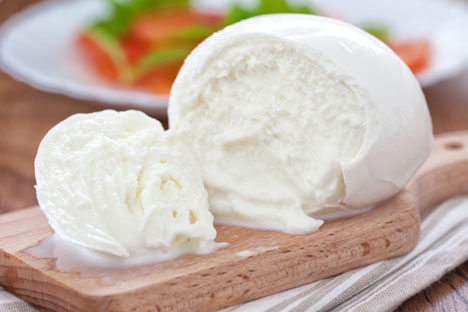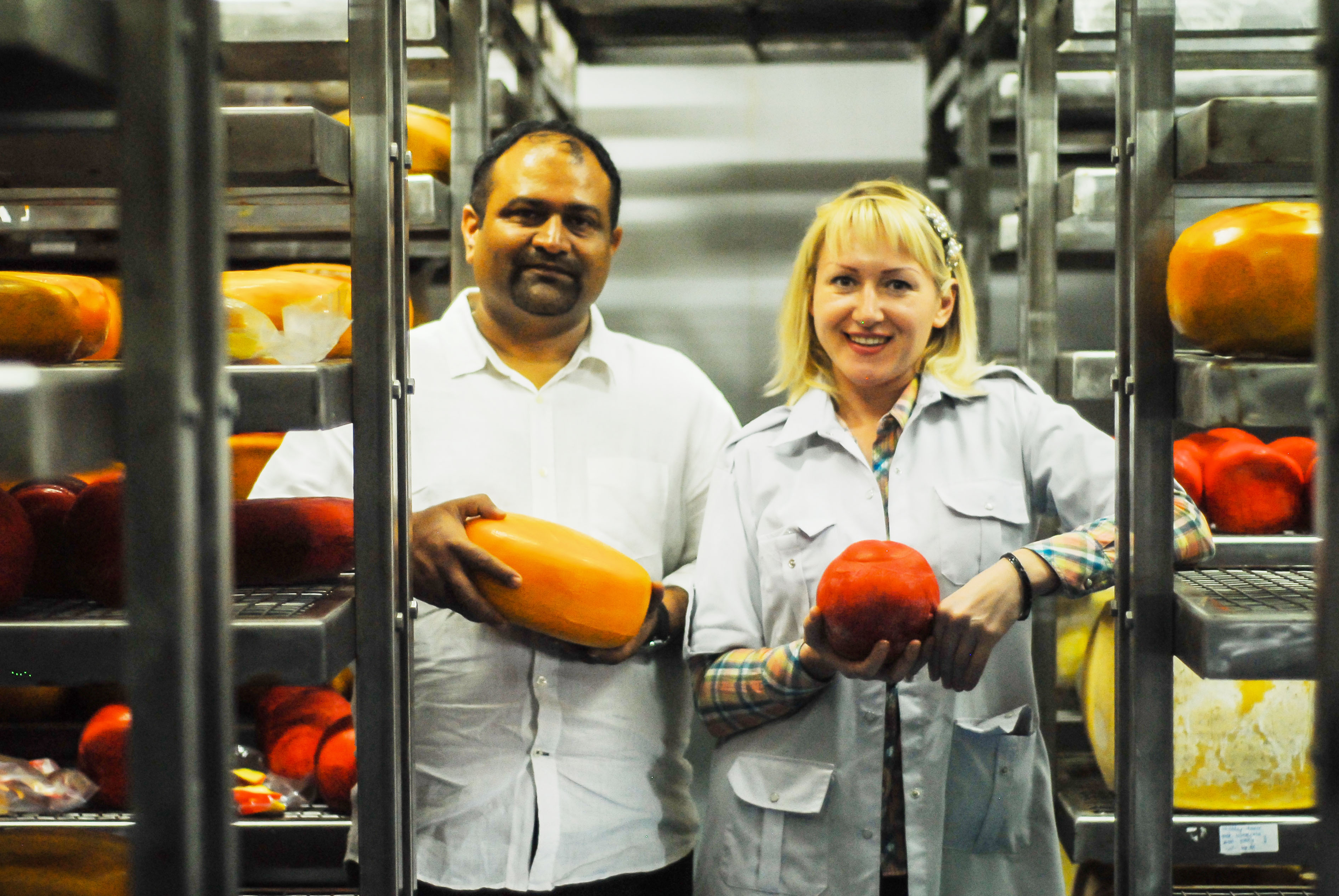Reinventing cheese, the Russian way

"Altai mozzarella" has been developed by scientists at the Siberian Scientific Institute of Cheese-making. Shutter Stock/Legion Media
Shutter Stock/Legion MediaScientists at the Siberian Scientific Institute of Cheese-making (SSICM) have made an Altarella cheese, or "Altai mozzarella," which tastes much like classic mozzarella, and is made of normal cow milk with Siberian cultures and organic acidifiers. The makers claim the process does not require adding harmful stabilizers and preservatives.
Another import-substituting development is a smooth cream cheese (a type of mascarpone) with fat content as high as 70 percent. Like its Italian counterpart, this cheese can be used in desserts.
‘Sursele’, a version of the mouldy Roquefort cheese, has also been developed in Altai. Consumption levels could, however, remain small because Russians are not accustomed to such delicacies. Altai scientists are experimenting with enzymes, and are producing mould cheeses with different flavours and ripening behaviour.
The Barnaul cheese-makers have patented their technology and local businessmen can now buy them. The new cheeses, however, are unlikely to reach grocery shelves in Moscow, St. Petersburg, and other parts of Russia any time soon. Food companies are cautious about new items, and retail chains are not keen to sell import-substitutes made locally.
"Russia is far behind France, Germany, and Italy in terms of cheese consumption, and we are limited by a lack of finance to modernize our equipment base and to create facilities for the production of domestic ingredients to make cheese," Vladimir Tkachenko, deputy director for science at the SSICM said.
According to Tkachenko, entrepreneurs interested in making cheese are hampered by tight credit conditions, long-distance shipping and problems dealing with retail chains. So a significant part of the cheese produced in the region does not reach Moscow and other cities in central Russia.
"Most of it is sold only in Siberia and Russia's Far East," Tkachenko said.
Manufacturers from Spain, Holland, and France are interested in what Russian cheese makers are doing. The Altai region is collaborating with the French region of Franche-Comte, and a Franco-Russian cheese college has recently been established there to educate cheese-makers.
All rights reserved by Rossiyskaya Gazeta.
Subscribe
to our newsletter!
Get the week's best stories straight to your inbox
